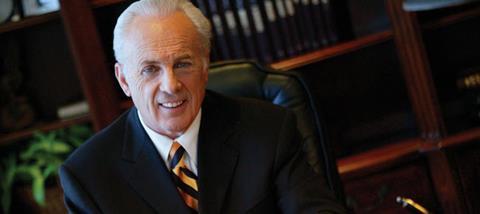
MacArthur accused the movement of dishonouring the Holy Spirit at the three-day event in October, and frequently claimed that a large proportion of the charismatic movement are non-believers.
‘The broader charismatic movement has opened the door to more theological error than any other doctrinal aberration in this modern day,’ he said. ‘If reformed leaders who know the truth, gospel and word of God don’t police this movement, the spiritual terrorists will dominate.’
In response to criticism that his preaching on this matter is divisive for the Church, MacArthur said: ‘I would agree with that. Truth by its very nature is divisive. That’s why Jesus said, “I came to bring a sword.” To divide people, to divide families. Truth by its very nature is separated from error. And it is far more important to be divided by truth than united by error.’
At a time when the Church continues to struggle to find unity on a broad range of issues, the conference and MacArthur’s message have caused consternation throughout the charismatic movement, and more broadly within the Christian Church.
‘These are hugely divisive comments from a man of his reputation and influence ? it is significantly unhelpful and damaging,’ Krish Kandiah, executive director: churches in mission at the Evangelical Alliance, told Christianity magazine. ‘There are ways to disagree in a gracious and engaging way. It seems he was engaging with the weakest expression of charismatic practice that he could find, rather than the more theologically robust form.’
Rev Dr Graham Tomlin, dean of St Mellitus College, agreed with this sentiment. ‘One of the remarkable features of charismatic Christianity over the past decade or so has been the growth in interest in theological exploration ? it might have been fairto criticise charismatics for a lack of theological depth 20 years ago, but that critique carries a lot less weight now.’
While agreeing that theological debate matters, Tomlin says that ‘it is always best done in a spirit of unity and friendship’
Moving forward, key figures in the UK Church are keen to see Christians embracing their diversity, rather than being divided by it.
‘It is helpful for us to behave in the spirit of one Church,’ said ecumenicist, broadcaster and writer, Joe Aldred. ‘The Bible speaks about trying to maintain the bond of unity for peace. We need to remember that unity we share, and to maintain it in the way we speak to and about each other. The denunciation of any brother or sister on theological grounds as demonic should be avoided. It is not helpful to the spirit of Church unity.’
‘Whilst it is helpful to be made aware of the many appalling abuses that are being perpetrated around the world in the name of the Holy Spirit, especially by “prosperity gospel” teachers, it would be a tragedy if this conference were to damage relations between genuinely Bible-centred evangelicals who have reached different views as to the validity of some spiritual gifts for the church today,’ said John Stevens, national director of the Fellowship of Independent Evangelical Churches.
‘Cessationists and noncessationists do disagree with each other about this, but many on both sides reach their conclusions as a result of careful biblical exegesis. Relationships between charismatics and cessationists would probably be strengthened if Bible-centred charismatics were quicker to condemn the real abuses that do occur, and if Bible-centred cessationists weregenerous in recognising that there are many continuationists who hold their position as a result of their commitment to the authority of Scripture.’
In a curious turn of events, mega church pastor Mark Driscoll made an impromptu visit to the Strange Fire conference and began to hand out copies of his latest book. He then wrote an open letter to MacArthur on his website, inviting him to his Resurgence Conference in November.




























